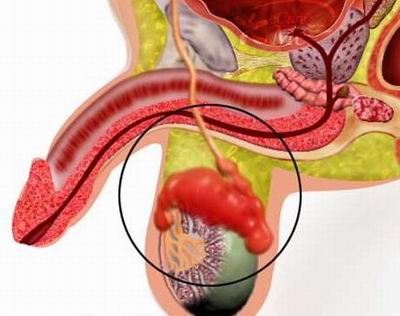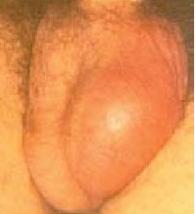Epididymitis Information
Click here to scroll to the list of available medications ↓
The epididymis is a small tube that appears like a coiled hose that rests behind the testicle. The job of the epididymis is to transport the sperm to the tube that carries sperm out of the body. Swelling, pain, and inflammation of the epididymis is known as epididymitis. Men between the ages of 19 and 35 are most often infected with epididymitis. Though epididymitis can affect both heterosexual and homosexual men, heterosexual men are most likely to pick up epididymitis from unprotected sexual intercourse.
Epididymitis can be chronic or acute. Both forms have similar symptoms including swelling of either one or both testicles, pain of the scrotum, tenderness in one or both testicles, pain when urinating, tenderness of the groin, fever, discharge from the penis, painful ejaculation, and blood in the urine. Acute epididymitis may also present with symptoms which are very severe and momentarily debilitating and have an onset that appears in about one or two days. Acute epididymitis is likely to clear up with treatment within a fairly short period of time. Chronic epididymitis may not clear up entirely but with treatment can become manageable. The chronic form also tends to develop in intensity over a period of time and has no definitive known causative factor. Chronic epididymitis is usually the result of multiple untreated or uncontrolled acute cases.

Some cases of acute epididymitis can be traced back to another sexually transmitted disease such as gonorrhea or syphilis. However, most homosexual men, children, and men over 40 years of age are more likely to contract the type of epididymitis that is not transmitted sexually. All forms of epididymitis are caused by bacteria. For instance, urinary tract infections can pass the bacterium to the epididymis and cause epididymitis.
Risk factors for epididymitis include infections that are close to or can contaminate the epididymis. Other risk factors include sexually risky behaviors such as sexual intercourse with multiple partners without the aid of protection, unprotected sexual activity with an infected partner, a personal history of sexually transmitted diseases, and sexual activity without the protection of a condom regardless of sexual orientation and number of partners.
Prostate symptoms such as the inability to urinate due to an enlarged prostate or other risk factors for developing a urinary tract infection or an infection of the urethra heightens the likelihood of developing epididymitis.
Diagnosis of epididymitis is often very similar to screenings for sexually transmitted diseases. A sample of the discharge from the penis should be analyzed, ultrasound imaging, and a nuclear scan to rule out testicular cancer all contributes to the diagnostic process. A physical examination can help determine other varying factors that may present like epididymitis.

Complications associates with epididymitis include the shrinking of one or both testicles, scrotal abscess, the development of chronic epididymitis, and in rare cases infertility or lowered fertility.
Antibiotic medications are usually enough to clear up an epididymitis infection. Chronic cases may need more intensive therapies, such as long term antibiotics or high dose antibiotics. If the infection has not cleared up within two or three days, more intensive therapies are necessary, although some cases of epididymitis can not be completely treated.
Elevating the scrotum and getting plenty of rest is necessary when trying to recover from epididymitis. The applications of cold packs to the scrotum can help with discomfort and swelling. Wearing an athletic supporter can alleviate pressure and pain if performing daily tasks becomes uncomfortable.